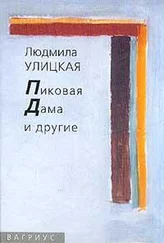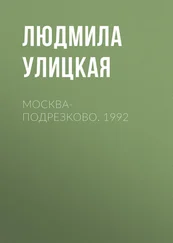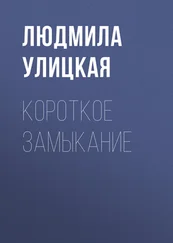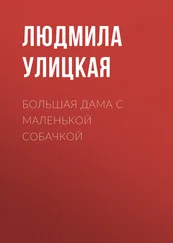With the few members of the male sex who chanced to come his way (the basic specialization of the sanatorium was after all the treatment of infertility, although it also had a small orthopedics department), he was stiff, even, perhaps, timid. Medea smiled at her observation. It occurred to her that the merry dentist was afraid of men. She was later to discover how painful the reality behind that casual observation was.
Medea was nearing thirty at this time. Dimitry was preparing to enter the military academy at Taganrog. Constantine was fifteen and hoping to become a geologist.
Her sister Anelya, who had taken Anastasia, the youngest of the children, to Tbilisi, had long been urging Medea to come and visit her. Anelya had her eye on a certain charming and still-young widower who was one of her husband’s relatives, and had it in mind to introduce them. Medea, who had no inkling of these plans, was also intending to visit her sisters, only not in the spring but in the autumn after she had laid in her supplies for the winter. If Anelya’s plans had come to fruition, this house, possibly the last Greek house in the Crimea, would not have survived, and the next generation of the Sinoply family, Greeks in Tashkent, Tbilisi, and Vilnius, would have forgotten its seafaring heritage. But things turned out differently.
In the middle of March 1929 all the sanatorium staff were called to an urgent meeting; absolutely all, including even feebleminded Rais with the asymmetrical smile on half his face. If Rais had been told to come, it was an indication that the meeting was on a matter of national importance.
The municipal Party boss, enormous Vyalov, was ranting at a table covered with glossy red material. He had already read out the Party directive and was now improvising on the subject of everyone’s wonderful tomorrow and the grandeur of the idea of collective farms. The mainly female staff of the sanatorium were listening obediently. These were mostly women who lived in the suburbs, owned half a house, a kitchen garden extending to a few hundredths of a hectare, a couple of small trees, half a dozen hens, and received a wage from working for the state. They were disinclined to heckle. Firkovich, the sanatorium’s chief consultant, was a native Crimean from a scholarly Karaim family and had been kicked about quite a bit in his time. He had been drafted into the Red Army in 1918 and worked in hospitals but had never joined the Communist Party. He still feared for his family so was always willing to keep his head down and make available the time and place for anyone else who wanted to speechify.
“Who’s got something to say?” Vyalov inquired, and immediately up jumped stout Filozov, the secretary of the Party cell.
Samuel Yakovlevich was sitting in the back row twitching, even bouncing up and down on his chair slightly and looking all around. Medea was sitting next to him and covertly observing his inexplicable agitation. Catching her eye, he seized her hand and whispered in her ear, “I have to speak. It’s imperative that I should speak.”
“Well, why are you getting so excited, Samuel Yakovlevich? Get up and speak if you want to.” She gently extricated her hand from his grasp.
“I’ve been a member of the Party, do you see, since 1912. It’s my duty.” His paleness was not a noble pallor, but an ashen, frightened greyness.
A new doctor, a curly-headed woman with a flat lock of hair to the left of her part and a German surname, spoke at length about collectivization, and kept repeating, “From the standpoint of the present moment in time . . .”
Clutching Medea’s hand, Samuel calmed down and sat that way through to the end of the meeting, his face twitching, mouthing something. When the meeting had thundered to an end, people started going out, but he was still holding her hand.
“This is a terrible day, believe me, a terrible day. Don’t leave me alone,” he begged her, and his eyes, light hazel, imploring, were completely feminine.
“All right.” Medea unexpectedly found herself readily agreeing, and they walked together out of the sanatorium’s lime-washed gate, past the bus station, and turned into a quiet street inhabited by railway workers ever since the railway had been brought to the town.
Samuel Yakovlevich rented a room with its own front door and a front garden in which there were two old vines growing and a table so gnarled and mossy it might have grown here at the same time as the trees. The vine had already twined itself around wires stretched above the table. The tiny courtyard was contained on one side by a rickety fence, and on the other by the clay wall of the neighboring house.
Sitting at the table, Medea watched Samuel Yakovlevich hopping around by the Primus stove in the entrance hall, taking down some goat’s cheese wrapped in a napkin from behind the door lintel, pouring vegetable oil into the frying pan, and managing to do everything rather fussily but nonetheless expeditiously. Medea looked at her watch. Her brothers would not be back today because both of them were in Koktebel at the gliding center and would stay there, most likely with Medea’s old friend who owned a dacha well known in those parts.
“I’m not in any hurry to go anywhere,” Medea noted to herself in surprise. “I am visiting.”
Samuel Yakovlevich didn’t stop chattering, and was so quick and at ease that you would have thought quite another person had just been clutching Medea’s hand.
“What an odd and changeable man,” Medea thought, and offered to help him prepare the tea.
But he asked her to sit still and enjoy the wonderful sky through the little leaves of the vine. “Let me tell you a secret, Medea Georgievna. I’ve done many things in my life. I even completed a course in farming for Jewish settlers, and now as I look at that vine,” he gestured sweepingly toward the two gnarled bushes, “I think to myself what a splendid job that is. Much better than fitting false teeth, eh? What do you think?”
Then he served supper at the table, and they ate potatoes which smelled of paraffin, and goat’s cheese, and she kept thinking it was time to get up and leave, but for some reason didn’t.
Later he escorted Medea right across town, telling her about himself, the minor and major upsets in his life, the times he’d been out of luck and the times he’d fallen on his nose. Yet he seemed not to be complaining, but laughing about it and wondering at it all. Then he respectfully took his leave of her and left her quite perplexed as to what it was about him that was so touching. Perhaps it was that he didn’t take himself very seriously.
They met again the next morning as usual, in the stomatology department. He seemed to have been replaced by a quite different dentist who didn’t talk much, was very correct with his lady patients, and didn’t joke at all. By lunchtime Medea had the impression there was something he wanted to tell her, and sure enough, when the last patient before lunch left, he spread out his doorstep sandwiches next to Medea’s slim, flat scones sandwiched around the first spring onions, shook his head, clicked his tongue, and asked, “How would it be, Medea Georgievna, if I were to invite you to dinner at the Caucasus restaurant?”
Medea smiled. He had invited not a few of his chosen lady patients to the Caucasus restaurant. She also found his grammar amusing: “How would it be if . . .”
“I would think about it,” Medea replied wryly.
“Well, what is there for you to think about?” he asked heatedly. “We’ll finish work and just go there.”
Medea understood that he really was very keen to take her to this restaurant of his. “Well, at the least I shall have to go home first to change,” Medea resisted weakly.
“Stuff and nonsense! Do you think all the ladies are wearing sables?” the dentist pressed home his attack.
Читать дальше




![Людмила Улицкая - Сквозная линия [litres]](/books/393468/lyudmila-ulickaya-skvoznaya-liniya-litres-thumb.webp)





